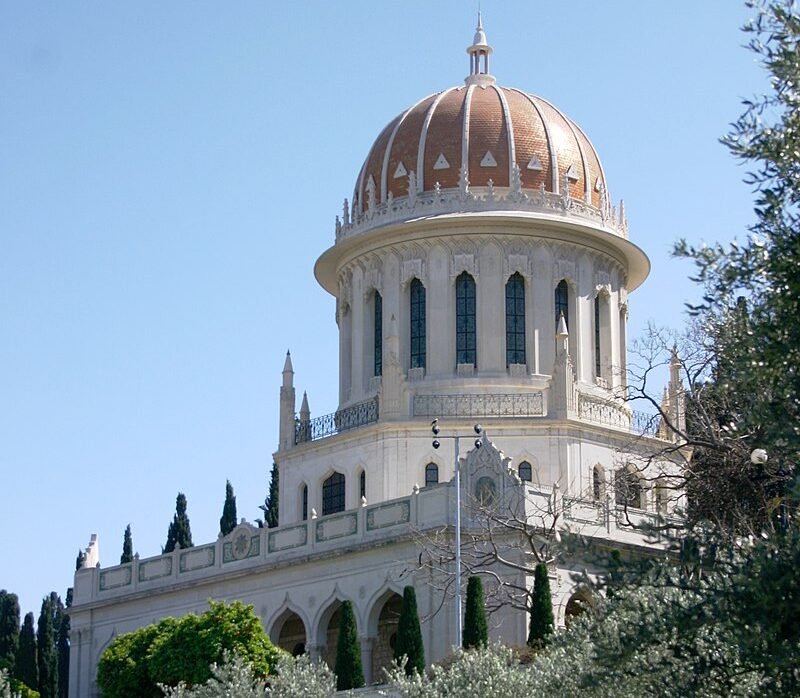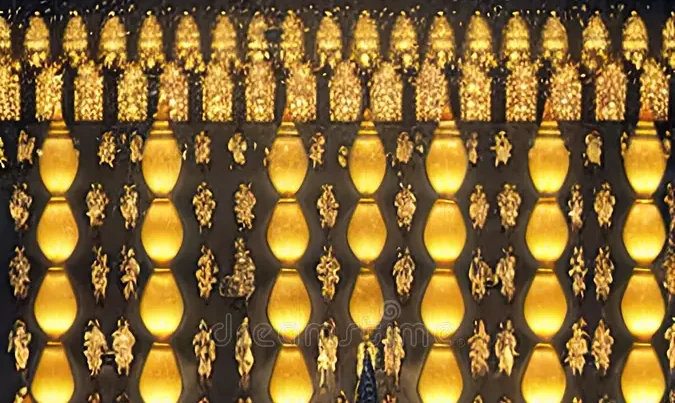The Middle East is a region between the eastern shore of the Mediterranean Sea and the line drawn by the border between Iran and Pakistan. The Middle East is part of West Asia with Asian Turkey, Transcaucasia and Egyptian Sinai.
The area concerned includes at least the Fertile Crescent (Jordan, Iraq, Israel, Palestine, Syria, Turkey and Lebanon), the Arabian Peninsula (Saudi Arabia, Yemen, Oman, United Arab Emirates, Qatar, Bahrain, Kuwait) and the valley of the Nile (Egypt). We sometimes add the Islamic Republic of Iran, Pakistan and Afghanistan (legacy of the definition inherited from the British Empire), the Maghreb States (Tunisia, Morocco, Algeria, Mauritania, Libya).

Contents
ToggleHolidays in the Middle East
Holidays of the month
July 9, 2025 (1 event)
–
July 9, 2025
Today, Bahá'ís commemorate the martyrdom of the Báb. On the morning of July 9, 1850 in Tabriz, a 30-year-old Persian merchant known as Báb was accused of apostasy and shot on the orders of the Prime Minister of the Persian Empire. #mythology #myth #legend #calendar #9July #Bahai #Bab
July 19, 2025 (1 event)
–
July 19, 2025
Today, the Mandaeans celebrate Dehwa Rabba, the new year. The day before Kanshī u-Zahli takes place, Mandaean priests spend the whole day performing prayers and masbuta until the afternoon, and animals are also slaughtered for consumption. Before sunset, Mandaeans prepare food for the day after Dehwa Rabba and also perform ṭmasha, or ritual immersion in water which does not require the assistance of a priest. #mythology #myth #legend #calendar #July 19 #Mandaean #DehwaRabba
Cultural areas of the Middle East
Religions in the Middle East are historically diverse: beyond the three great monotheistic religions and their respective confessions stemming from the Abrahamic tradition, many other religions have developed since Antiquity, some of which are still practiced in the 21st century.
Babism or the Babi faith (Persian: Arabic: بابی ها Bábí há) is a reforming and millenarian religious movement founded in Iran on May 23, 1844 (5 Jamádíyu'l-Avval 1260 AD), by a young merchant from the city of Shiraz, named Siyyid 'Alí Muḥammad Shírází (1819-1850) and nicknamed the Báb.
Bahaism also known as the Bahá'í religion (pronounced baˈhaːʔiː), Behaism or Bahá'i faith is a monotheistic religion whose goal is to unite humanity in its diversity (this perspective is already found in the poet Saint Kabir born in the 15th century in India). It was founded by the Persian Mirzâ Husayn 'Alî (1817-1892) in 1863. This name is derived from the nickname given to its founder: Bahá'u'lláh (in Arabic, "Glory of God" or "splendor of God" ). Bahá'ís are the disciples of Bahá'u'lláh.
Gnosticism is a religious movement bringing together various doctrines from the Mediterranean basin and the Middle East which are generally characterized by the belief that men are divine souls imprisoned in a material world created by an evil or imperfect god called the demiurge. The movement reached its peak during the 2nd century. The demiurge can be seen as an incarnation of evil, or as a good but imperfect god.
He exists alongside another supreme being, more distant and difficult to know, who embodies good. In order to free himself from the lower material world, man needs gnosis, that is, the esoteric spiritual knowledge available through direct experience or knowledge (gnosis) of the supreme being. Jesus of Nazareth is identified by certain Gnostic cults as an incarnation of the supreme being who incarnated to bring gnosis to men.
Zoroastrianism is a monotheistic religion of which Ahura Mazdâ (pehlevi: Ohrmazd) is the god, solely responsible for bringing order to the initial chaos, the creator of heaven and Earth. Zoroastrianism is a reform of Mazdaism, a reform prophesied by Zarathustra, whose name was transcribed Zoroaster by the Greeks (Ζωροάστρης, Zōroastrēs). This reform, founded during the 1st millennium BC. B.C. in present-day Iranian Kurdistan (Western Iran), became the official religion of Iranians under the Sassanid dynasty (224-651), until Islam arrived, although this religion was successful to blend into Iranian cultural heritage.

